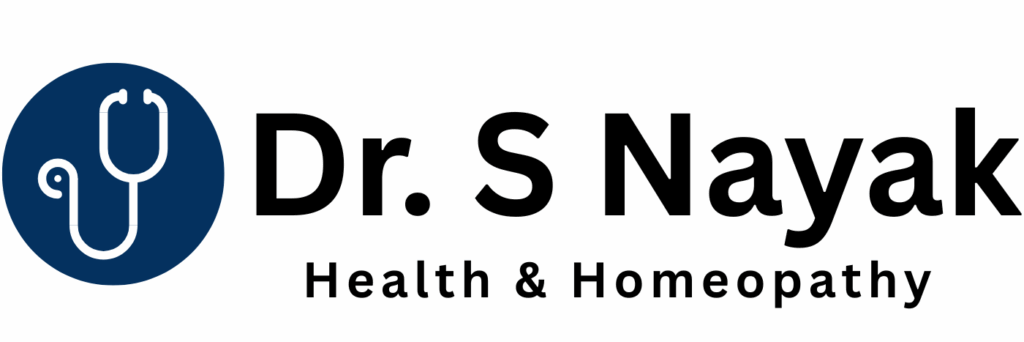Introduction
In the age of rapid technological advancement and pharmaceutical innovations, alternative and complementary healing systems continue to thrive. One such enduring discipline is Classical Homeopathy, a natural, holistic system of medicine that dates back over two centuries. Based on the principle of “like cures like,” Classical Homeopathy offers a patient-centric approach to healing, addressing physical, mental, and emotional well-being simultaneously. This blog delves deep into Classical Homeopathy, exploring its rich history, principles, benefits, and relevance in the modern era.
What is Classical Homeopathy?
Classical Homeopathy is a system of alternative medicine that treats patients using highly diluted substances intended to trigger the body’s natural healing processes. Unlike conventional treatments that often target symptoms, Classical Homeopathy aims to treat the root cause of the illness by considering the patient’s overall constitution and symptoms.
History and Origins
Samuel Hahnemann: The Father of Homeopathy
Dr. Samuel Hahnemann, a German physician and chemist, founded Homeopathy in the late 18th century. Disillusioned with the harsh and often dangerous medical practices of his time, Hahnemann sought a gentler, more effective approach. His experiments with cinchona bark led him to formulate the Law of Similars, which states that a substance causing symptoms in a healthy person can cure similar symptoms in a sick person.
Hahnemann’s seminal work, The Organon of the Healing Art, laid the groundwork for homeopathic theory and practice. His philosophy emphasized minimal intervention, the body’s innate healing ability, and the importance of individualized treatment.
The Legacy of James Tyler Kent
James Tyler Kent, an American physician, significantly advanced Hahnemann’s principles in the late 19th and early 20th centuries. Kent developed detailed homeopathic repertories and materia medica that are still widely used today. His emphasis on the mental and emotional symptoms of patients helped refine the holistic approach that defines Classical Homeopathy.
Core Principles of Classical Homeopathy
The Law of Similars (Similia Similibus Curentur)
This principle asserts that a disease can be cured by a substance that produces similar symptoms in a healthy individual. For example, onion (Allium cepa), which causes watery eyes and a runny nose, can treat colds or allergies with similar symptoms.
The Minimum Dose
Homeopathic remedies are administered in extremely diluted doses to minimize toxicity and side effects. Hahnemann believed that the minimum dose could stimulate the body’s vital force without causing harm.
Individualization of Treatment
Each person is treated as a unique individual. Even if two patients have the same disease, their homeopathic prescriptions might differ based on their unique physical, emotional, and psychological makeup.
The Vital Force
Homeopathy recognizes a vital force or life energy that sustains health. Illness arises when this force is disturbed. Remedies aim to restore balance and harmony to the vital force.
Benefits of Classical Homeopathy
Safe and Non-Invasive
Homeopathic remedies are non-toxic and safe for all age groups, including infants and pregnant women. They do not cause dependency or interfere with conventional medications.
Personalized Treatment
Every treatment plan is tailored to the individual, leading to more effective and sustainable outcomes.
Long-Term Health Benefits
Homeopathy aims at eradicating the root cause of illness, which often leads to long-lasting or permanent relief.
Cost-Effective Healthcare
Because of its minimalistic approach and natural substances, homeopathy is often more affordable than conventional treatments.
Conditions Treated with Classical Homeopathy
Acute Conditions
- Colds and flu
- Allergies
- Headaches
- Minor injuries
Chronic Illnesses
- Asthma
- Eczema
- Arthritis
- Irritable Bowel Syndrome (IBS)
- Migraines
Mental and Emotional Disorders
- Anxiety
- Depression
- Insomnia
- ADHD
Scientific and Clinical Support
While mainstream medicine often questions the efficacy of homeopathy due to its dilution methods, several studies have shown positive outcomes. Double-blind trials and observational studies have demonstrated benefits in conditions like allergies, rheumatism, and chronic fatigue.
Homeopathy is officially recognized in several countries and integrated into national healthcare systems, notably in India, where it is regulated and practiced widely.
Controversies and Criticisms
Skeptics argue that homeopathy’s effects are placebo-based due to the high dilution levels of remedies. Critics demand more rigorous scientific studies to validate its claims. However, proponents emphasize its individualized approach and clinical success stories that are hard to ignore.
Choosing a Qualified Homeopath
When opting for homeopathic treatment, it is essential to consult a trained and licensed practitioner. Check for certifications from recognized homeopathic boards or associations, and ensure the practitioner follows Classical Homeopathy principles.
Integrating Homeopathy with Conventional Medicine
Many patients find value in combining homeopathy with conventional treatments. It’s crucial to inform all healthcare providers about ongoing treatments to avoid drug interactions and ensure coordinated care.
Future of Classical Homeopathy
With growing interest in holistic and preventive healthcare, Classical Homeopathy is poised for a resurgence. Advances in technology and data analytics may help bridge gaps in scientific validation while preserving its philosophical roots. Education and awareness can further cement its place in integrated medical systems.
Conclusion
Classical Homeopathy stands as a time-tested, patient-focused system of medicine that emphasizes healing the whole person. From its inception by Samuel Hahnemann to its refinement by James Tyler Kent, it has consistently offered a compassionate and effective alternative to conventional medicine. Despite ongoing debates, millions worldwide continue to find relief and balance through its methods. As we seek more sustainable and personalized approaches to health, Classical Homeopathy offers wisdom rooted in nature, individuality, and respect for the body’s innate healing power.
Disclaimer: If you’re considering Classical Homeopathy, consult with a qualified practitioner to ensure safe and appropriate care tailored to your needs.


relaxation thc edibles reduce stress and promote calm